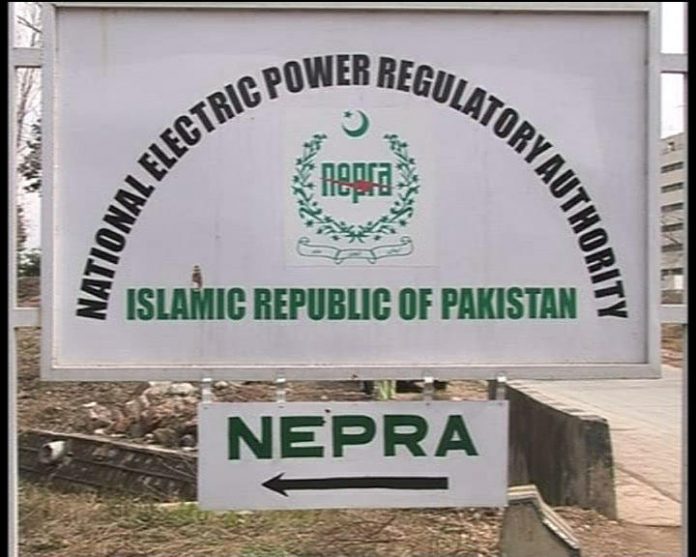Chairman National Electric Power Regulatory Authority (NEPRA) Tausif H. Farooqui will not reconsider the imposition of the Maximum Demand Indicator (MDI) fixed electricity charge on the business community, he told representatives of the Lahore Chamber of Commerce and Industry on Saturday.
The MDI is a fixed charge on industrialists that they have to pay even if they are not using electricity, and Farooqui said it was important in order to cover costs of producing power and making it available to industries.
During a session with Farooqui in Lahore on Saturday, LCCI President Kashif Anwar requested the NEPRA Chairman to play his role in rolling back the MDI charge. He drew the chairman’s attention towards the issue, saying that, a few months back, NEPRA had imposed MDI charges on all industrial and commercial consumers under which they were charged 50% of their sanctioned load.
“The electricity bill has to be paid without using the units. If they use electricity more than 50% of their allotted load, then they will pay the bill according to the units used instead of MDI charges,” Anwar said. He said the decision is affecting the business community whose industrial units are closed or whose work is done on a seasonal basis. He said this matter had also been taken up with the CEO of Lahore Electric Supply Company, who has assured all possible support to the business community in this regard.
The chairman, however, explained that power sector dues, which include import costs, are to be met by charging according to allocations. He added that the cost of production is already very high because the country depends on imported fuels and the devaluation of currency has worsened matters.
“Seasonal businesses can disconnect their electricity connections and reconnect when they need electricity but the cold storages are not a seasonal business, and they work throughout the year and meet the needs of vegetables, fruits and perishable items of the country,” Farooqui said.
Chairman NEPRA said that, at the rate at which Discos were charging MDI charges, they were paying 10% more to Central Power Purchasing Agency Guarantee (CPPA-G). “This is a very low price that they are charging,” he said.
“We are having a hearing next week on MDI. By joining it, the business community can let us know about their concerns. If businessmen are using more than 50% electricity, they are not charged any MDI. If one has a high sanctioned load while usage is low then it needs a rethink,” Farooqui stressed.
He said that it had been decided that the rate of net metering will remain at Rs 19.90 and will not be less than that.
He added that NEPRA has issued licenses for 65,000 MW power supply while the total requirement was 23,000 MW across the country.
“We currently have an installed capacity of 43,000 MW. A total of 65% of electricity generation is done on imported fuels. We don’t have dollars. The rupee has devalued due to which coal has also become expensive. Due to depreciation, our cost has increased eight times and overall input cost has increased by 16%. How is it possible that despite the 16% increase in input cost, we do not increase the tariff?” Farooqui said.
Anwar also pointed out that rumors were circulating that the proposal to reduce the rate of net metering was under consideration.
“On the one hand, we are worried about reducing our import bill. Our fuel import bill is $23 billion. In such a situation, we have to shift to renewable energy but they are reducing the rates of net metering. If such a decision is taken, there will be a lot of discouragement from the government in promoting the use of renewable energy, especially solar energy,” he said.
He also requested NEPRA chairman to remove the confusion about the net metering rate.





Actually government has no vision to boost economy, their interests are outside the country that’s why industry is going down and down 👎